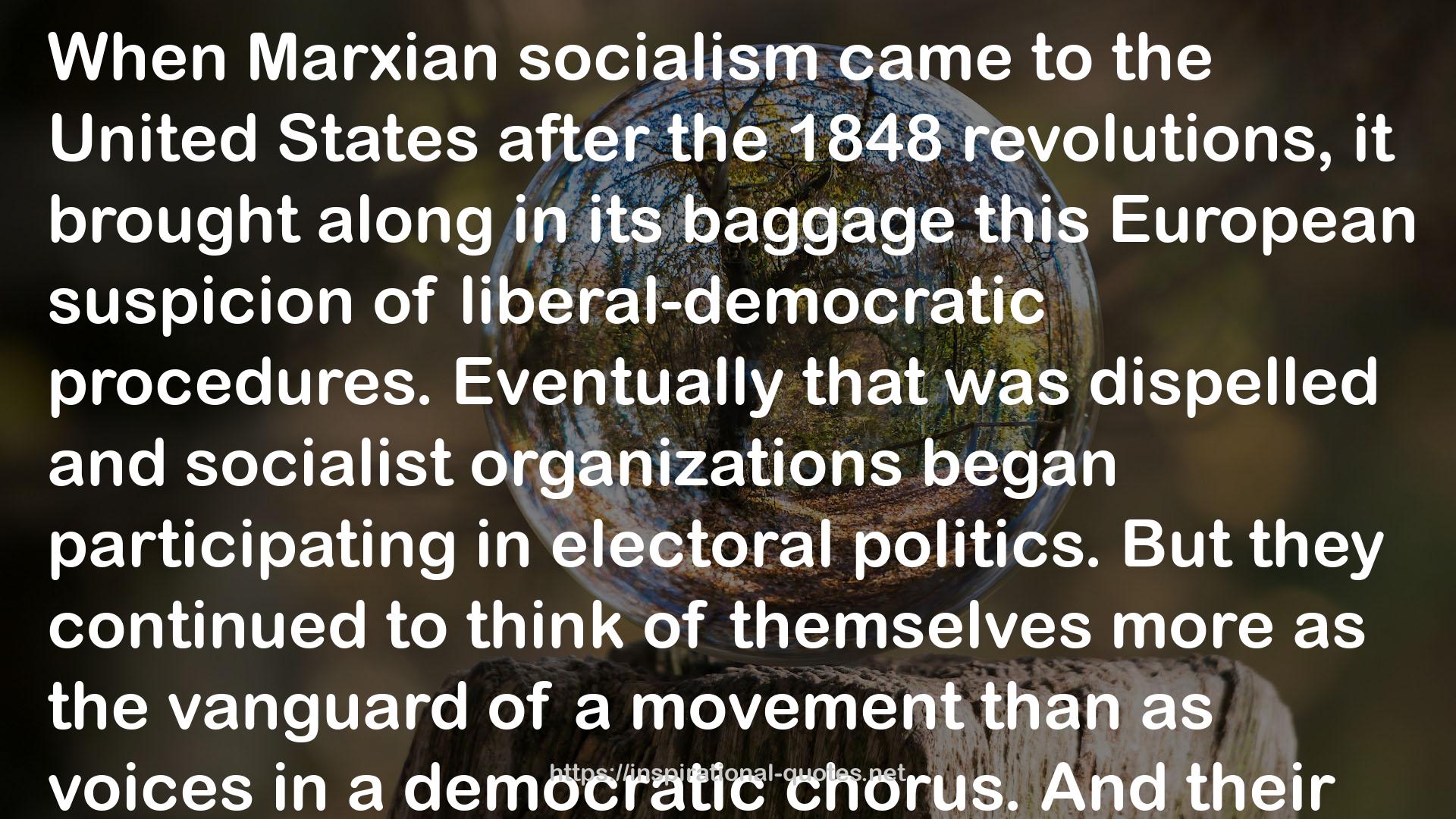" When Marxian socialism came to the United States after the 1848 revolutions, it brought along in its baggage this European suspicion of liberal-democratic procedures. Eventually that was dispelled and socialist organizations began participating in electoral politics. But they continued to think of themselves more as the vanguard of a movement than as voices in a democratic chorus. And their preferred political tactics remained the mass demonstration and the strike -- rather than, say, winning elections for county commissioner. The significance of these groups in American politics peaked during the Great Depression and then faded. But their movement ideal retained its grip on the left, and in the 1960s it captured the imagination of liberals as well. There had been emancipatory movements before, against slavery, for women's rights, for workers' protection. They did not question the legitimacy of the American system; they just wanted it to live up to its principles and respect its procedures. And they worked with parties and through institutions to achieve their ends. But as the 1970s flowed into the 1980s, movement politics began to be seen by many liberals as an alternative rather than a supplement to institutional politics, and by some as being more legitimate. That's when what we now call the social justice warrior was born, a social type with quixotic features whose self-image depends on being unstained by compromise and above trafficking in mere interests. "
― Mark Lilla , The Once and Future Liberal: After Identity Politics
